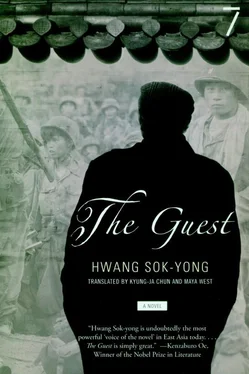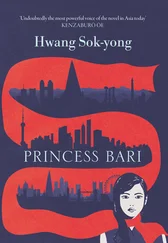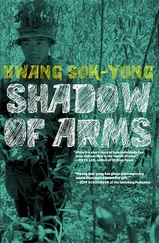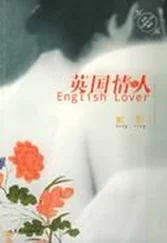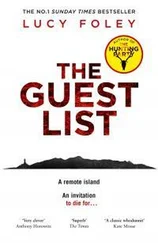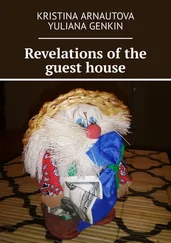“They say it was the superstitious freaks who did it.”
“No, it was Satan who did it.”
“Come now, what sort of a ghost is that?”
Ryu Yosŏp replied, “It is the black thing that lives in the heart of every man.”
At the end of the pine tree forest appeared a levee that was as tall as a man; a set of cement steps led up to the top. They walked up the steps. The first thing to greet their eyes was the vista of a wide, open field. The sun was just coming down over the field; it was a gorgeous sunset — breathtaking. The chirping of birds, magpies, maybe, could be heard from afar along the early autumn breeze as it blew across the grass. Yosŏp finally felt as though he had truly arrived; this was the hometown of his childhood. He sat down quietly on the grass atop the levee. Below him was a reservoir. The surface of the water, calm under the setting sun, rippled now and again when a fish would jump up in a flash of blinding white before it disappeared again. Each ripple was audible, and the glossy surface was momentarily broken by a series of concentric rings.
“Come, sit with me for a moment.”
Hesitant, Tanyŏl sat down beside his uncle.
“Do you know why I came here?”
“Well, I—”
“I’ve come here to cleanse us all of the crimes that were committed by people like your father and me.”
His nephew’s hollow face, tanned and expressionless, became slightly distorted as a cynical smile began to form on his lips.
“Father was a reactionary. He can never be forgiven, not in a thousand years. How could such a crime ever be cleansed, especially now that he is no longer in this world?”
Yosŏp reached into the inner pocket of his jacket. He fumbled for the little leather pouch, drew it out, and untied the leather string. He reached in and took out the sliver of bone that had belonged to his brother. Cupped in his palm, the yellow-tinted bone looked just as much like a tojang as the first time he’d seen it.
“Your father was cremated before I left to come here. This piece of bone is his, part of his remains. In a way, your father has come home with me.”
Tanyŏl craned his neck, staring at Yosŏp’s palm.
“Well, go on. Touch it,” said Yosŏp.
His nephew held out his hand. Tanyŏl’s trembling thumb and forefinger touched the bone, held it for a moment, and then leapt back to his side. The younger man began to sob, his face buried between his legs. Waiting for this wave of emotion to die down, Yosŏp put the bone back into the pouch and placed the pouch back in his inner pocket. Tanyŏl wiped his face with both hands, sniffed a couple of times, and picked himself up from the grass.
“I am a Party member. Reactionaries like us are forever indebted to our Honorable Leader, who has embraced us into the great bosom of our Republic. I have been assigned the task of spending time with you, Uncle, in order to convey the sincere hopes of the Party that you will help lead the mission of unification for our nation.”
“Yes, yes, right, that’s right, and I thank you for it,” said Reverend Ryu Yosŏp, patting his nephew on the back.
They passed back through the pine forest once more and returned to the guesthouse. The guide was waiting for them at the front gate.
“Your bath is ready. You must be tired. Take a bath and get some sleep.”
A couple of bathrobes and bath towels had been placed neatly on the bed. Taking off his clothes, Yosŏp turned to his nephew.
“Tanyŏl, go ahead and get undressed — we can bathe together.”
“You can go first, if you like.”
“I’d like you to help me scrub my back.”
The bathroom at the guesthouse was a cozy size, about five p’yŏng , 29and the round, tiled tub had a separate faucet. A small stool made of wooden boards stood in the middle of the floor. The heavy smell of sulfur seeped out of the pipes, and the water looked slightly yellow. Without a word the two men got into the tub and sat there with their eyes closed. Climbing out of the tub, Yosŏp sat down with his back to his nephew. Tanyŏl splashed some water on his uncle’s back and began to scrub it for him with a wet towel. When his nephew’s hand touched his back, without letting him see what he was doing, Yosŏp lowered his head for a moment and said a prayer.

Thirsty, Yosŏp woke up in the middle of the night.
The sound of snoring filled the room. In the bed next to him, Tanyŏl was fast asleep. Fumbling, Yosŏp opened the door and walked out into the pitch-black living room. Groping along the wall, he managed to turn the light switch, but there was no response — the light was out. He thought he remembered hearing that the power was cut off in the countryside after midnight in order to conserve electricity. He decided to give up on the light. Feeling around on the table for the water bottle, he found it and took several deep gulps. He was sitting down on the sofa, intending to stay for just a moment, when two men suddenly materialized out of nowhere and sat down as well, facing him. It didn’t even surprise him anymore. One was Yohan, elderly with his white hair, and the other was the same middle-aged Uncle Sunnam.
How — are you two going to leave now? You’re on such good terms with each other.
The phantom of Big Brother Yohan, wearing his traditional Korean shroud, nodded.
That’s right. But before that, we thought we’d come by and clarify a few things.
Uncle Sunnam, still wearing the people’s uniform with the buttons all the way up to his chin, smiled. His eyes half-closed, he said, Now that I’m through with all this, now that I’ve left it all behind, it doesn’t really seem that horrible anymore. We do need to talk about it though, to be fair and honest. Besides, you have to finish any unfinished business before you leave if you don’t want to get stuck wandering around in this world.

The first few months following liberation, everyone fell into a mindless frenzy of activity. We visited our town and traveled to Haeju and then on to Pyongyang to set up the Committee for the Preparation of Korean Independence, and we Christians were the first out of the five northern provinces to put their ideas into action. But then the trouble started — the Communists decided to change our title to the People’s Committee. I was twenty-one at the time, and I’d long been a member of the Christian Youth Association, so it was only natural for me to go on and become a member of the Democratic Party. In Haeju, the right-wing raided the headquarters of the Provincial People’s Committee and killed three people. There were demonstrations in the streets — all this not even a month after liberation. After that the left-wing peacekeeping troops took over all the law enforcement agencies. By then any Japanese collaborators who’d been exposed had long since disappeared — when autumn came, all those people who participated in the Committee for the Preparation of Korean Independence, all the landlords and businessmen, not to mention the presbyters of the various churches, they all began crossing the border down into the South.
That November, scores of students and Christians died in Sinŭiju, protesting against the Communist Party and Soviet authority. When we got back home, the Provincial People’s Committee for our area had already been founded — the state of the town was just ridiculous. Everyone and his grandmother, all the servants and good-for-nothings and vagabonds, the ones who felt they’d been treated badly in their own towns and villages, they were all sticking together. Naturally, we cut ties with this so-called People’s Committee and formed our own group, centered around the church.
Читать дальше
